Nova Scotians encouraged to 'open their hearts and their homes' to Ukrainian refugees

Two months ago, four-year-old Joshua Oluwamogbiele was wrapped in a sleeping bag, lying in a cot inside a tent at the Romanian-Ukrainian border.
Now, he is blowing bubbles and picking dandelions in a sunny backyard in Elmsdale, N.S.
On March 3, the Oluwamogbiele family fled their home in Yuzhnoukrainsk, a city in southeastern Ukraine. Their eight-week journey, filled with terror and anguish, ended safely at their new home just 30 minutes outside of Halifax.
They are one of millions of Ukrainian families forced to flee the Russian invasion and seek refuge around the world.
Canada has accepted more than 200,000 applications under the new Canada-Ukraine authorization for emergency travel visa.
Nova Scotia has already welcomed more than 100 Ukrainians and is preparing to welcome 300 more on June 2. More are expected after that.
With the continuous influx, the provincial government is working to plan settlement services and housing for hundreds on short notice. The result is that many Nova Scotians have had to open their homes.
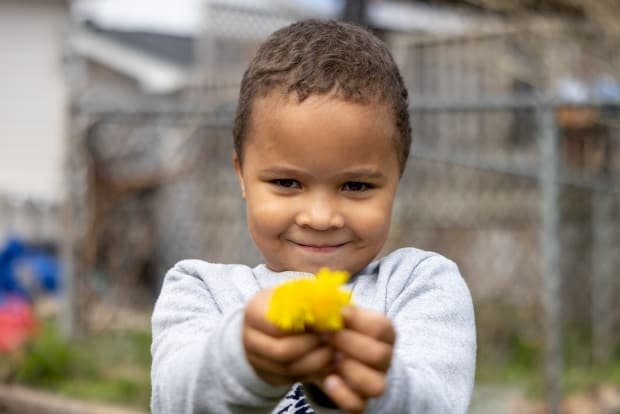
Bukunmi Oluwamogbiele said his family's hosts, the Powell family, have been crucial to their move to Canada.
"We knew how difficult it was to migrate and relocate and start all over again without having the means or necessary options put into place," Oluwamogbiele said from their host family's home in Elmsdale. "We were actually relying on all the information we were able to gather with the help of our hosts, they have been so helpful."
Journey out of Ukraine
When Russian forces invaded, Maria Oluwamogbiele packed what she could into two bags and left the family's home behind. Her husband, Bukunmi, was at sea for work at the time, so she was alone with Joshua and her infant daughter, Sarah.
"Crossing the border from Ukraine to Romania was a long process because it required six hours by road and then another one hour by ferry," said Bukunmi Oluwamogbiele, translating for Maria.

"It was chilly outside, and they were exhausted because they had been travelling since midnight," he said. "They wanted to sleep … as soon as they made it to the other side of the road, Joshua fell on the floor and slept in a tent."
Bukunmi tried to keep in touch with his wife and help her plan the journey over the phone.
"So that was something traumatic for me to experience, knowing that I wasn't around," he said.
Maria travelled through Romania and Turkey before she was reunited with Bukunmi in Frankfurt, Germany, on April 25.
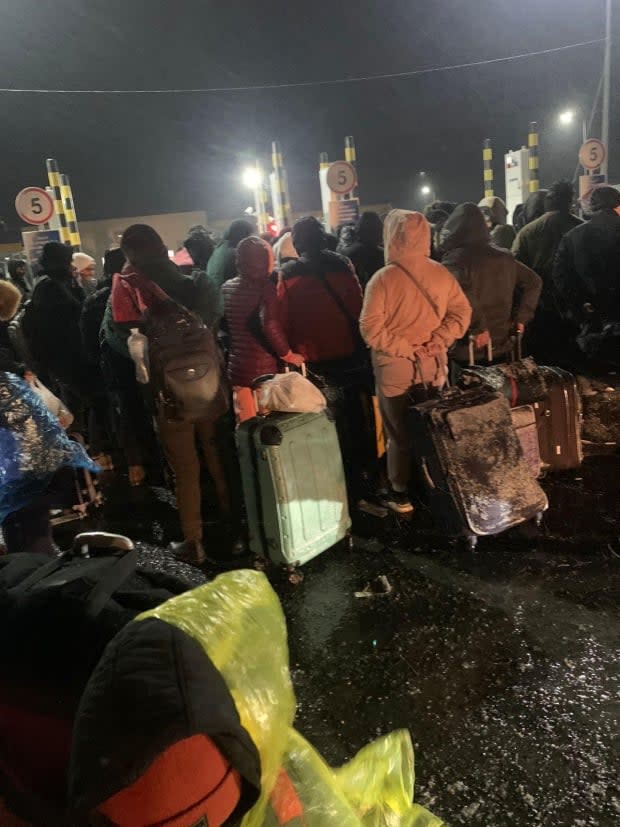
"Immediately, when I saw them in Frankfurt, I knew we were together and everything will be OK when we get to Canada," Oluwamogbiele said.
Finding a host family
After they received their travel visas, the family was faced with the challenge of finding a place to stay in Nova Scotia.
They knew they wanted to live in Halifax because Bukunmi works at sea, so Maria turned to a website that connects Ukrainians with Canadian hosts.
She sent a message to a stranger. It was Vanessa Powell.
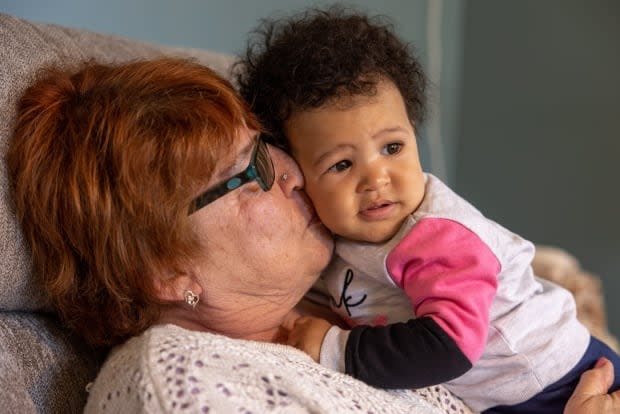
"We've been watching the horrors and the trauma that people were going through … and the fact that the Canadian government was saying that they were going to offer safe haven to Ukrainian families," Powell said.
"We decided that we've got a couple of spare rooms and we could help out. It was probably the least we could do."
The two families spoke online and exchanged photos. Three weeks ago, Powell met them at the airport.

"I think they had three suitcases and a couple of backpacks with the kids' toys and food and things and a stroller. And that was it, for a whole life," Powell said.
Settlement process
An official settlement process is being created for Ukrainians arriving in Nova Scotia, by the provincial government and its partners, the YMCA and Immigrant Services Association of Nova Scotia (ISANS).
Jennifer Watts, CEO of ISANS, said when the charter flight of 300 Ukrainians arrives in Halifax in June, there will be a booth at the airport to connect them with services.
"Helping people understand what it's like to be living in Canada, helping to access basic resources such as the health-care system, getting a social insurance number, connecting with other government departments that they may need to have documentation with," Watts said.
Watts said ISANS will also provide employment counselling, help with finding permanent housing, and accessing the school system.
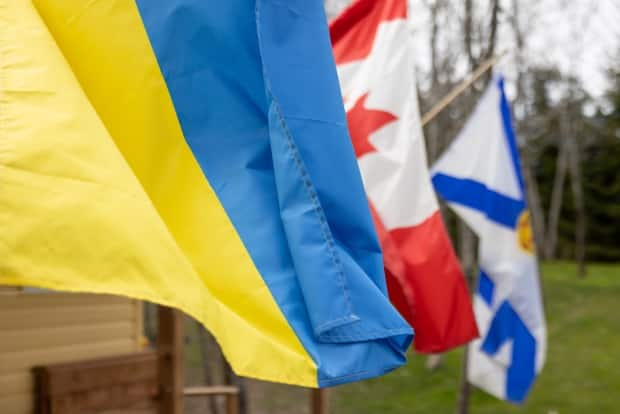
She said the services will be free for Ukrainians. The provincial and federal governments will be footing the bill, even though Ukrainians are not classified as refugees if they come under the Canada-Ukraine visa.
Watts said it is unclear how many will be arriving.
She said long-term support will also be provided, but certain federal programs for refugees, like a year of federally funded housing and income support, are "not currently available".
"We're all kind of moving into this situation right now and adapting," she said. "And many of the programs and services are developing and changing, sometimes on a weekly basis."
Offers of housing 'greatly accepted'
Jill Balser, Nova Scotia's minister of labour, skills and immigration, said housing will be paid for by Immigration, Refugees and Citizenship Canada for the first two weeks after arrival, but the locations haven't been confirmed.
She said she has already seen many families connect through social media to set up housing, and is hoping to see Nova Scotians continue to open their homes.
"It is a very fluid situation and we know that Nova Scotians understand that," she said. "So offers of housing are greatly accepted."
Balser said she has heard of businesses and churches that have offered places for Ukrainians to stay.
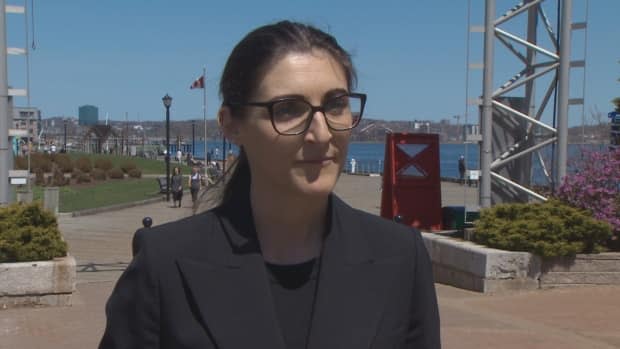
Watts said she recognizes the current housing crisis in Nova Scotia could make things difficult for people searching for a home.
"We're working very hard with community partners, with landlords, looking at some options that will respond in the short term, but hopefully leading into the long term," she said.
Watts mentioned the YMCA has a website of resources for Ukrainians as well as Canadians looking to offer support, which includes a link for landlords and businesses to register to provide housing.
The housing aid link on the website currently provides no listings or available options, but gives tips for finding housing in the province.
Connecting hosts and families
One local Facebook group has been helping house Ukrainians when they arrive. Atlantic Canada Hosts for Ukrainians now has more than 6,500 members across the region.
Willy Hunter, of Moncton, is one of the group's creators.
"Myself and a few other people are trying to collect names of Ukrainians that want to come to the Maritime provinces and also hosts in those provinces that are looking for families," he said.
"We are spending somewhere between five and eight hours a day trying to match up people's interests and the jobs that they want and the communities that they're interested in living in."
Hunter said the group has already helped match more than 250 families, but they are in need of as many hosts as they can get, especially in Halifax.
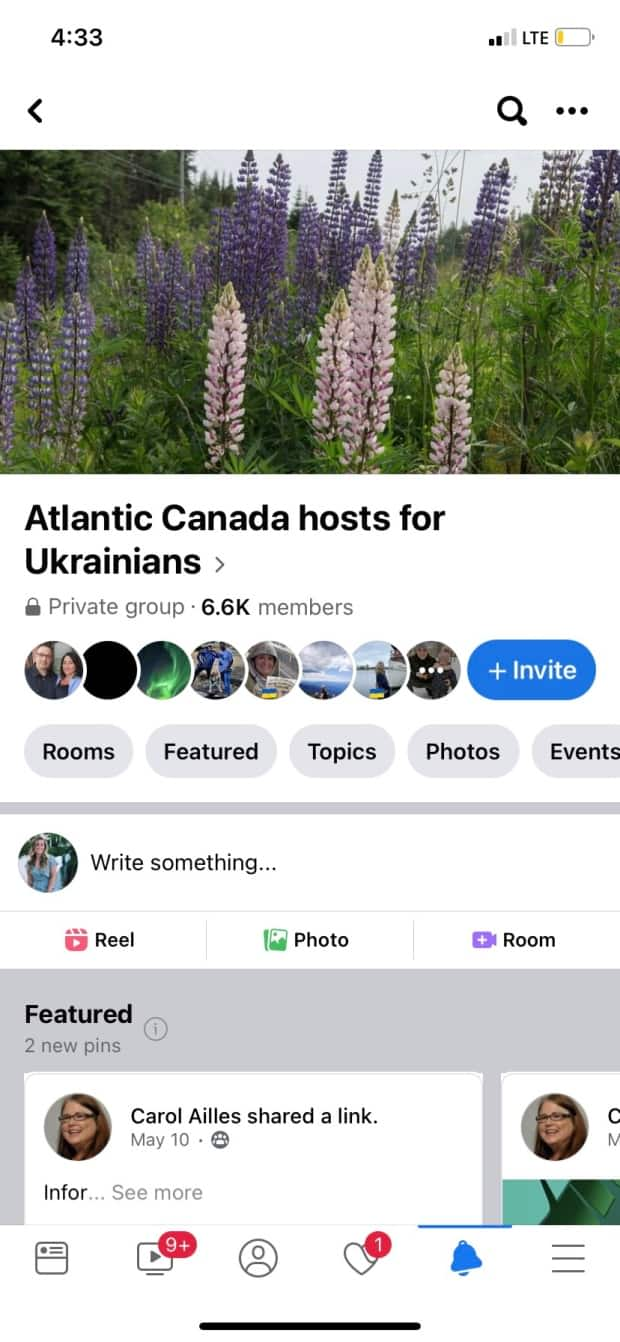
Hunter said hosts can "at a minimum" provide a safe place for Ukrainian families to rest, but they can also help people navigate their new cities and complete tasks. Those could include applying for medical coverage and getting a bank account.
But he said having access to free housing is the most crucial aspect for Ukrainians.
"People coming from Ukraine … most of them do not have the resources to enter into the market for housing in Canada," Hunter said. "They're coming, starting off without jobs, starting off without homes, starting off without many possessions. And so they need assistance to get started."
Hunter also said while his group has a database of families and tries to verify that everyone is representing themselves accurately, the risk lies in the hands of the individuals making the agreement.
Watts said ISANS has been in contact with the group, and encourages every host family to connect with ISANS or the YMCA to make sure their Ukrainian guests get the support they need.
Making a new life
As for the Oluwamogbiele family, Bukunmi said they are settling in well, thanks to the Powells and help from ISANS and a local refugee settlement group called the HEART Society.
He said his children are happy. Joshua has made friends with local kids, despite the language barrier.
The HEART Society has found the family a home to rent in the Elmsdale area, where Joshua will start kindergarten in the fall.
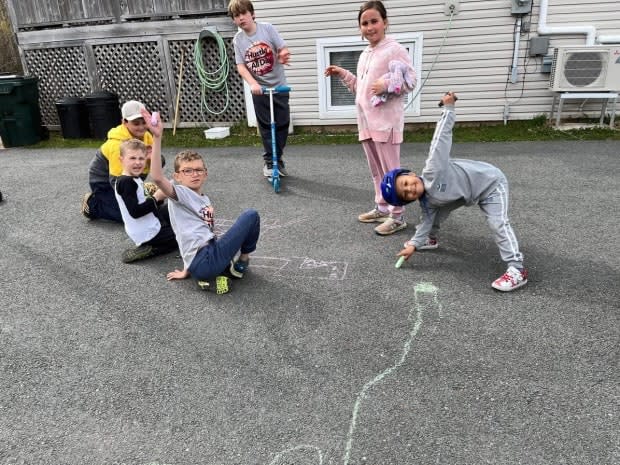
Bukunmi said he has been told "the sky is the limit" for his children in Canada.
"Whatever we do is for their own future," he said. "So being here already makes us feel relief and excited for a new beginning."
Powell said she would recommend the hosting experience to anyone. She said the Oluwamogbieles have become part of her family.
"It is so enriching to be part of something like this," she said.
MORE TOP STORIES


